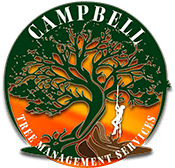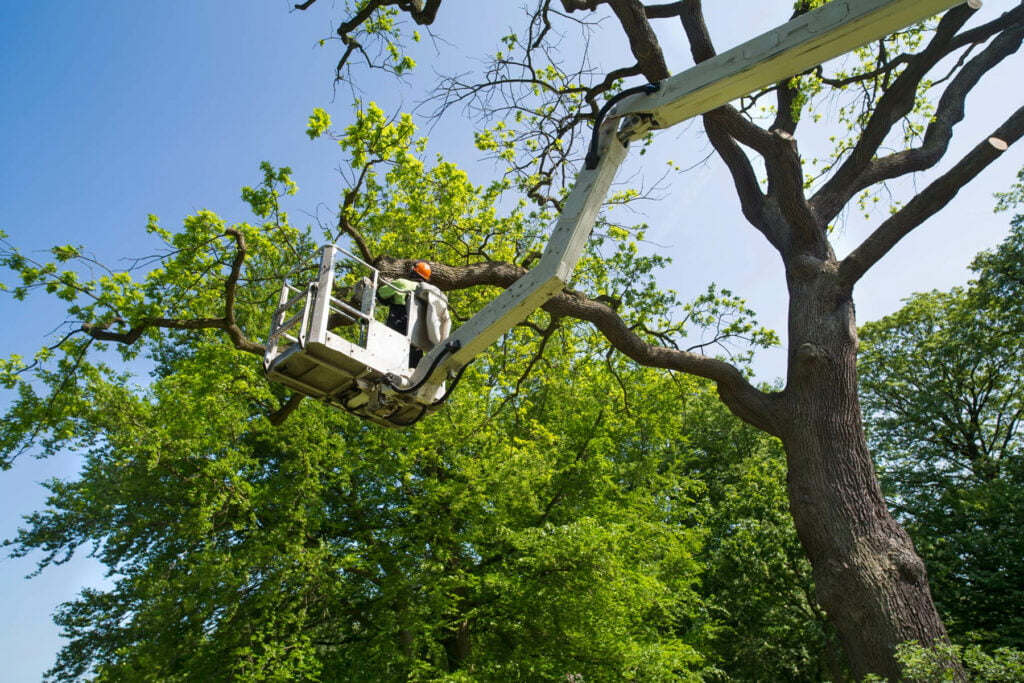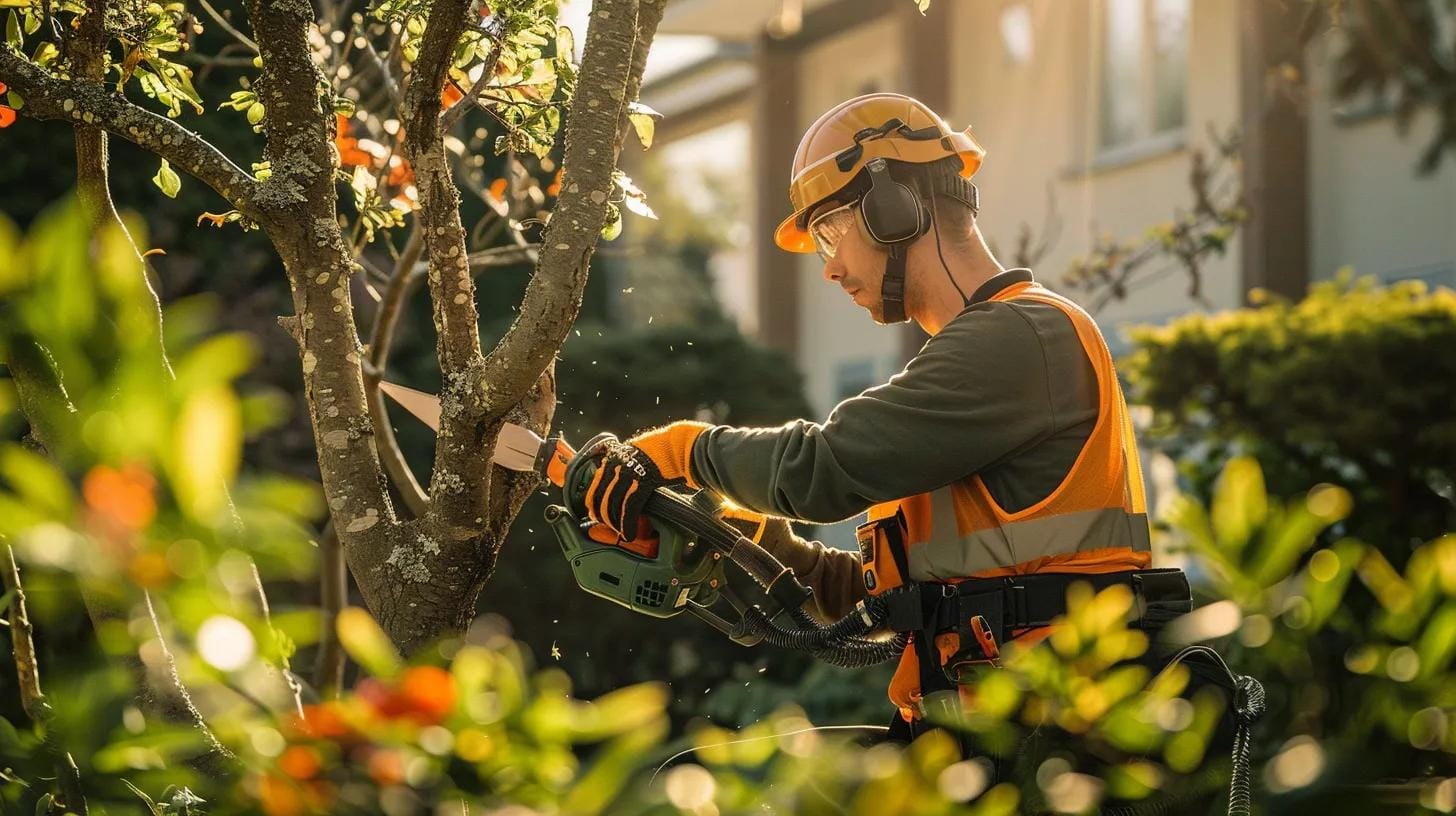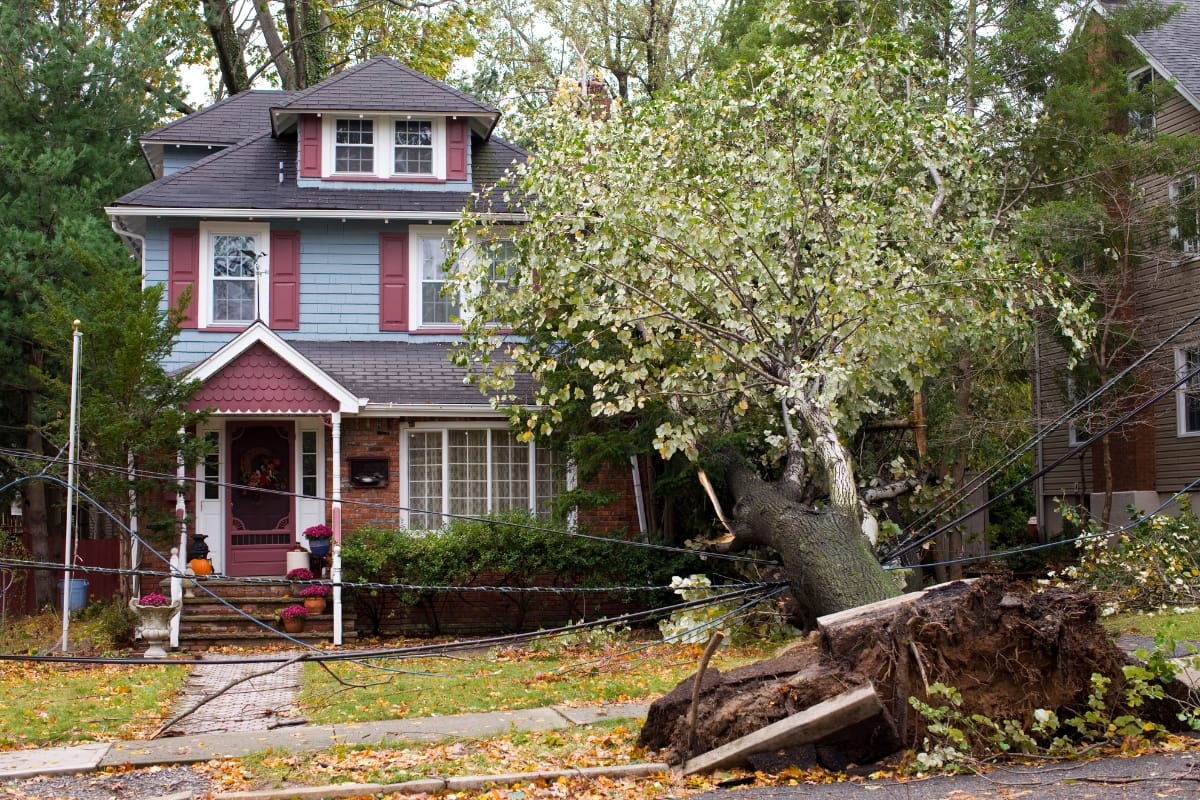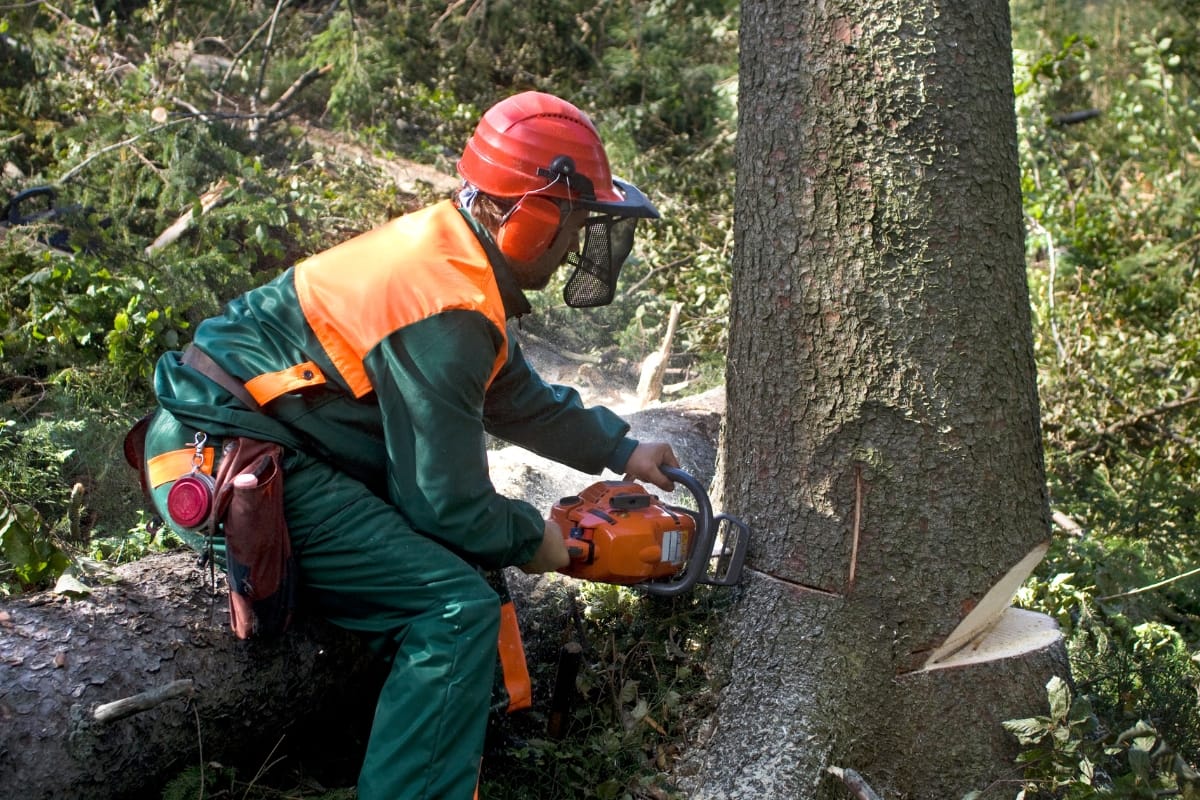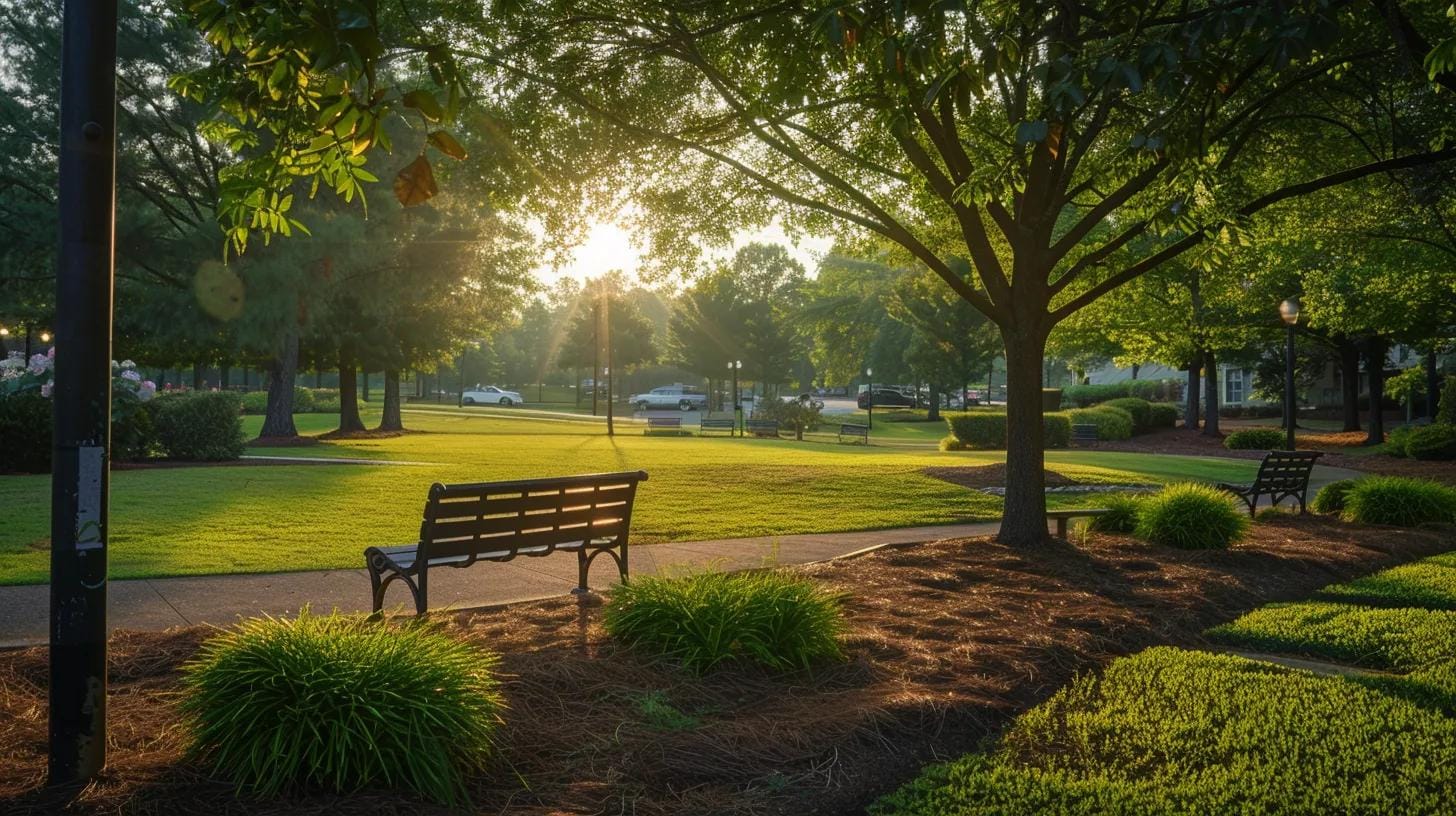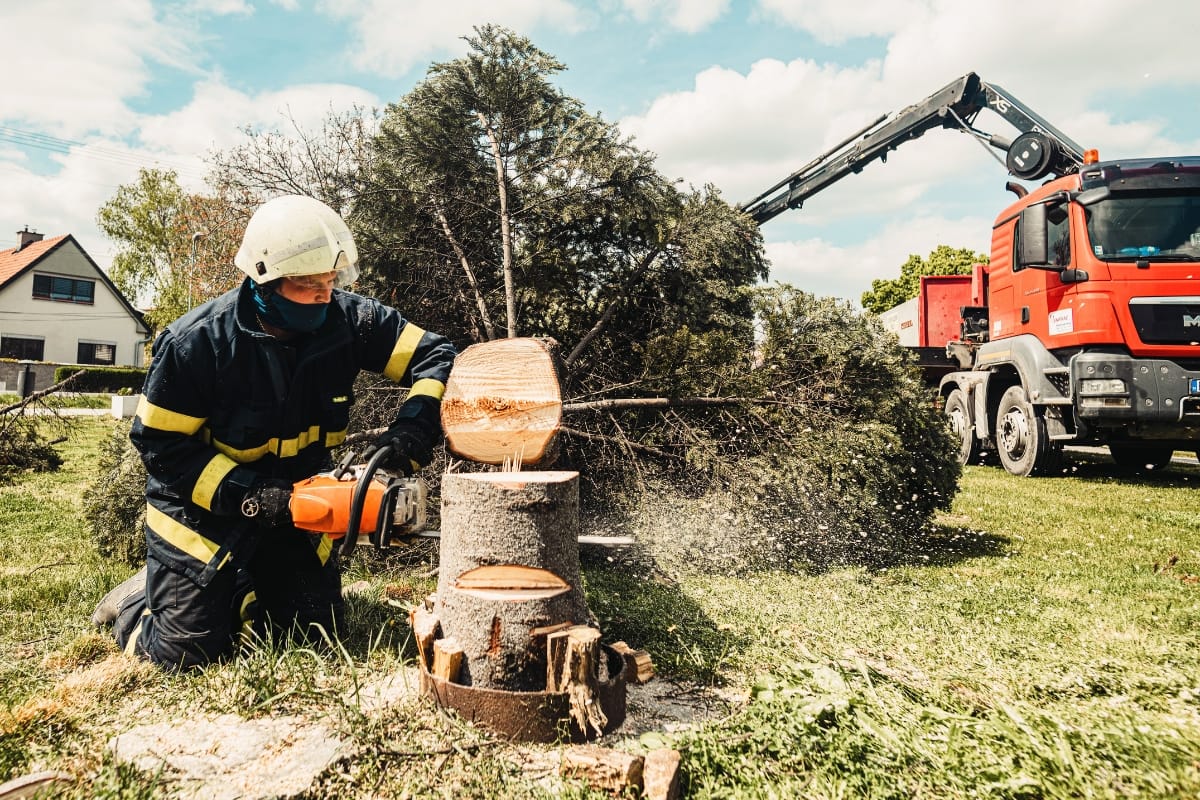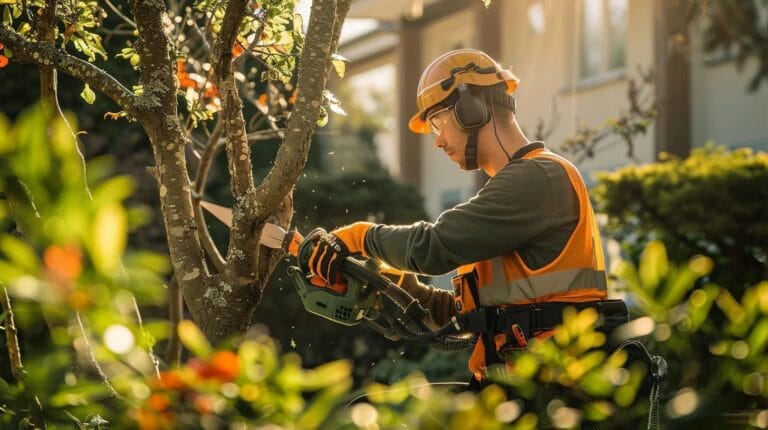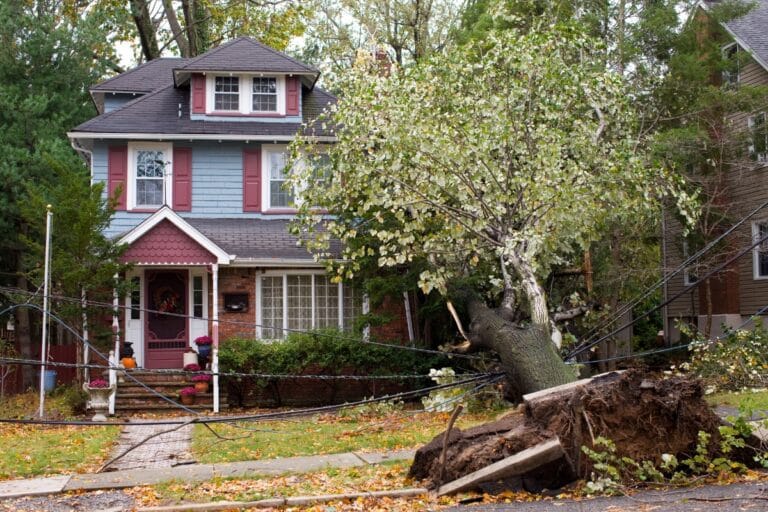Tree roots can cause significant damage to driveways and sidewalks in Johns Creek, leading to costly repairs. This guide explores effective strategies to prevent tree root damage, including proper tree selection, root barriers, and regular maintenance. Homeowners will learn practical steps to protect their property, manage existing root issues, and find local resources for expert assistance. By implementing these preventive measures, residents can maintain safe, attractive driveways and sidewalks while preserving the health of their trees.
Stop Tree Root Damage: How to Protect Your Pipes & Pavement
Understanding Tree Root Damage and Its Impact on Driveways and Sidewalks
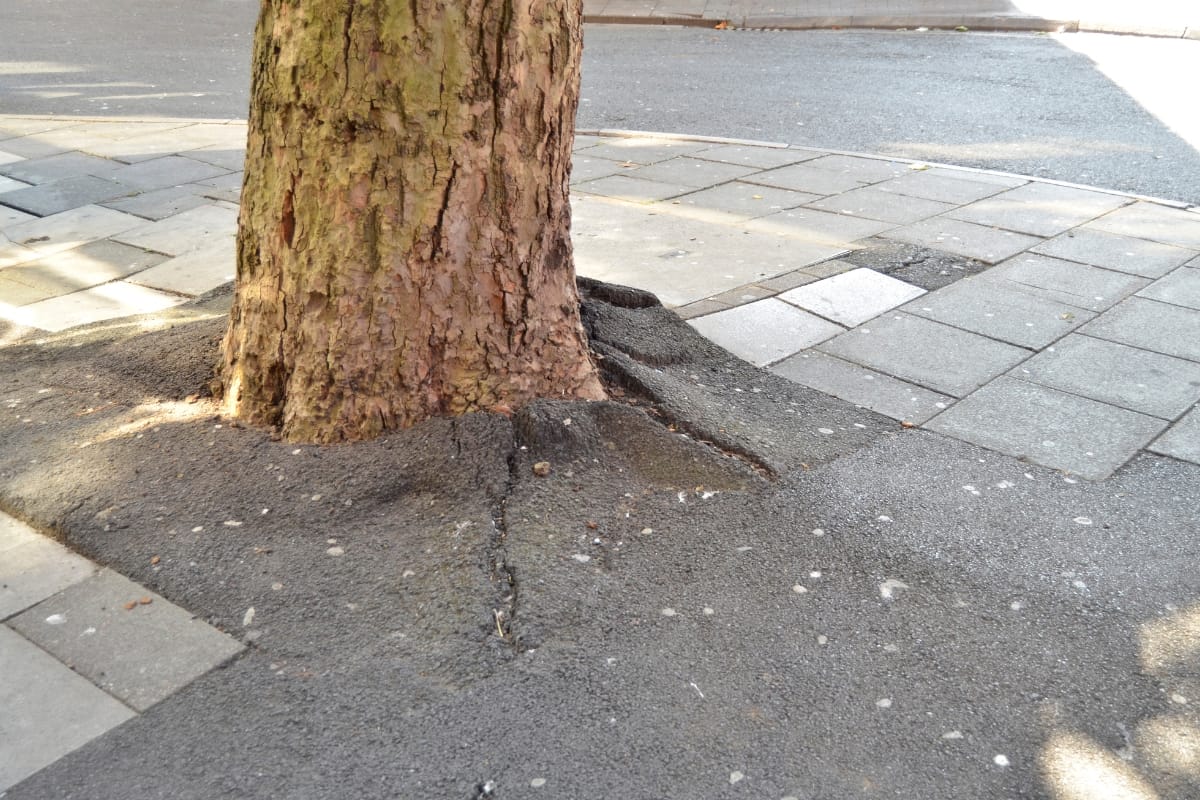
Tree roots can pose significant threats to driveways and sidewalks in Johns Creek. As roots grow and expand, they exert pressure on surrounding structures, leading to cracks and uneven surfaces. This section explores how tree roots cause structural issues and the common signs of root damage. Understanding these factors is crucial for effective prevention and maintenance, potentially avoiding costly repairs or tree removal.
How Tree Roots Cause Structural Issues
Tree roots can cause significant structural issues by exerting pressure on driveways and sidewalks as they grow. The roots seek out water and nutrients, often extending far beyond the tree‘s canopy. As they expand, they can lift concrete slabs, create cracks, and cause uneven surfaces. This process, known as root heaving, can lead to trip hazards and compromise the integrity of paved areas.
The damage caused by tree roots is not limited to surface-level issues. Roots can also penetrate small cracks in foundations, expanding them over time and potentially causing tree root foundation damage. In some cases, roots may absorb moisture from the soil beneath structures, leading to soil shrinkage and settlement. To address these concerns, property owners in Johns Creek should consider consulting an arborist via email for expert advice on root management and prevention strategies:
| Root Damage Prevention Methods | Benefits |
|---|---|
| Root barriers | Redirect root growth away from structures |
| Proper tree selection | Choose species with less invasive root systems |
| Regular maintenance | Prune roots and apply compost to encourage deep growth |
| Avoid salt use | Prevent soil degradation and root damage |
Common Signs of Tree Root Damage
Identifying tree root damage early is crucial for preventing extensive harm to driveways and sidewalks in Johns Creek. Common signs include raised or cracked pavement, uneven surfaces, and visible roots breaking through the concrete. These issues often worsen during periods of drought or excessive rainfall, as changes in soil moisture cause roots to expand or contract.
Property owners should also be aware of less obvious indicators of root damage, such as sudden changes in the tree‘s trunk or canopy health. Soil erosion around the base of the tree, unexplained settling of nearby structures, or the emergence of fungal growth on the trunk may signal root problems that could impact surrounding construction. Regular inspections by a qualified arborist can help detect these signs early and prevent costly repairs.
Tree roots can wreak havoc on driveways and sidewalks. But there are ways to stop them before they start.
Effective Prevention Strategies for Tree Root Damage

Preventing tree root damage in Johns Creek involves strategic planning and implementation. Selecting appropriate tree species for urban areas and using root barriers are key strategies. These methods address common issues like soil compaction and fungal growth while promoting healthy leaf development and nutrient uptake. By adopting these approaches, property owners can protect their driveways and sidewalks from the destructive impact of tree roots.
Selecting the Right Tree Species for Urban Areas
Selecting suitable tree species for urban areas in Johns Creek is crucial for preventing root damage to driveways and sidewalks. Property owners should choose trees with non-invasive root systems and manageable growth habits. Factors such as mature size, root spread, and tolerance to pruning play a significant role in determining the best species for urban landscapes.
Trees with deep, vertical root systems are ideal for urban settings, as they are less likely to cause surface damage. Some recommended species include oak, maple, and elm varieties that have been bred for urban environments. These trees often require less frequent pruning and stump removal, making them cost-effective choices for long-term landscape planning. Consider the following table for tree selection guidance:
| Tree Species | Root Characteristics | Urban Suitability |
|---|---|---|
| Red Oak | Deep, vertical roots | Excellent |
| Japanese Maple | Shallow, spreading roots | Good for small spaces |
| Ginkgo | Deep, non-invasive roots | Very good |
| Crape Myrtle | Compact root system | Excellent for urban areas |
Implementing Root Barriers to Protect Hardscape
Root barriers are an effective strategy to protect hardscapes from tree root damage in Johns Creek. These physical barriers, typically made of rigid plastic or metal, redirect root growth downward and away from structures, preventing soil erosion and minimizing the risk of emerald ash borer infestation. By installing root barriers during tree planting or as a remedial measure, property owners can safeguard their driveways and sidewalks while maintaining tree health.
Professional tree services in Johns Creek often recommend root barriers as part of a comprehensive approach to tree root damage prevention. These barriers not only protect hardscapes but also promote deeper root growth, which can improve overall tree stability and health. When combined with proper tree selection and regular maintenance, root barriers provide a long-term solution to mitigate the impact of tree roots on urban infrastructure, ensuring the longevity of both trees and surrounding structures.
Prevention strategies guard against root damage. Regular maintenance ensures trees stay healthy and homes safe.
Routine Maintenance Practices to Minimize Damage

Regular maintenance practices are essential for minimizing tree root damage to driveways and sidewalks in Johns Creek. Proper tree pruning helps manage growth and reduce stress on roots, while monitoring soil conditions ensures optimal moisture and nutrient levels. These practices, combined with careful tree planting and targeted fertilizer use, can significantly reduce the risk of root-related issues and promote healthy plant development.
The Importance of Regular Tree Pruning
Regular tree pruning plays a crucial role in managing root growth and preventing damage to driveways and sidewalks in Johns Creek. By strategically removing excess branches and foliage, arborists reduce the tree‘s overall water and nutrient demands, which can decrease the need for extensive root systems. This practice also helps maintain proper soil aeration and topsoil health, reducing the likelihood of roots seeking resources near the surface.
Pruning encourages healthier root development by redirecting energy to essential growth areas. When performed correctly, it can minimize the need for invasive tree root cutting and digging near hardscapes. Additionally, regular pruning helps identify and address potential pest issues early, preventing weakened trees from developing aggressive root systems that may damage nearby structures.
Monitoring Soil Conditions Around Hardscapes
Monitoring soil conditions around hardscapes is crucial for preventing tree root damage in Johns Creek. Regular soil testing helps detect signs of erosion, compaction, and nutrient deficiencies that can drive roots towards driveways and sidewalks. Arborists assess soil moisture levels, pH balance, and oxygen content to ensure optimal growing conditions for trees like oak, reducing the likelihood of surface-seeking roots.
Proactive soil management involves addressing drainage issues and maintaining proper soil structure. By ensuring adequate water and nutrient distribution, tree roots are less likely to extend aggressively near hardscapes. Property owners should watch for visual cues such as soil cracks, exposed tree roots, or changes in soil level, which may indicate potential root-related problems:
| Soil Condition | Potential Impact | Preventive Action |
|---|---|---|
| Compaction | Reduced oxygen, shallow root growth | Aeration and organic matter addition |
| Poor drainage | Waterlogging, root suffocation | Improve grading, install drainage systems |
| Nutrient deficiency | Aggressive root spread | Targeted fertilization |
| Erosion | Exposed roots, structural instability | Mulching, erosion control measures |
The homeowner’s role is crucial. In Johns Creek, residents face unique challenges that require special attention.
Best Practices for Homeowners in Johns Creek
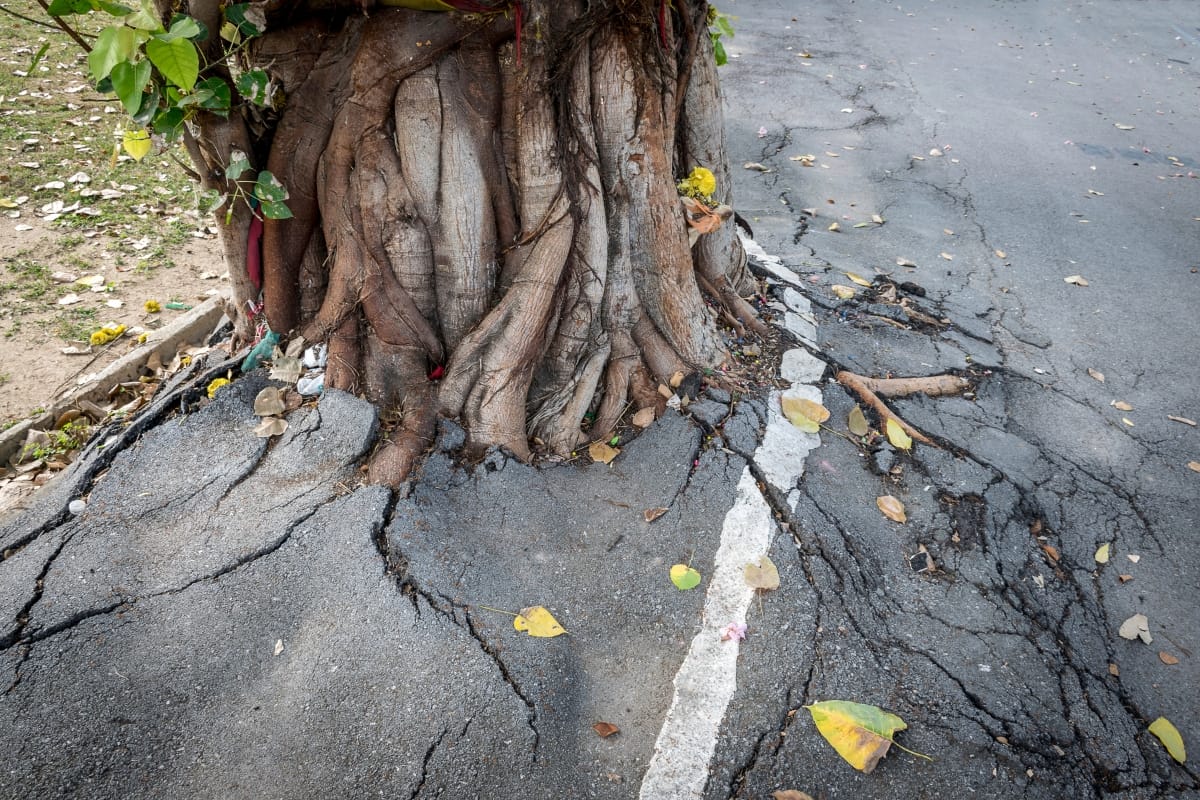
Johns Creek homeowners can protect their driveways and sidewalks from tree root damage through proactive measures. Engaging local arborists for regular tree health assessments helps identify potential issues early, preventing wilting and water-related problems. Creating a landscaping plan that safeguards pathways ensures long-term protection against root intrusion, maintains property value, and ensures safety.
Engaging With Local Arborists for Tree Health Assessments
Engaging with local arborists for tree health assessments is a crucial step for Johns Creek homeowners to prevent root damage to driveways and sidewalks. Professional arborists can evaluate tree species, root systems, and soil conditions to identify potential risks before they become problems. These experts provide valuable insights into tree health, growth patterns, and appropriate maintenance techniques tailored to the specific trees on a property.
Regular assessments by certified arborists help homeowners develop proactive strategies to manage tree roots effectively. These professionals can recommend appropriate pruning schedules, root barrier installations, and soil management practices to minimize the risk of root intrusion. By collaborating with local tree specialists, property owners can maintain healthy trees while protecting their hardscapes:
| Assessment Component | Benefit | Recommended Frequency |
|---|---|---|
| Root system evaluation | Identify potential conflicts with structures | Annually |
| Soil analysis | Optimize growing conditions | Every 2-3 years |
| Tree health inspection | Detect early signs of stress or disease | Bi-annually |
| Growth projection assessment | Plan for future space requirements | Every 3-5 years |
Creating a Landscaping Plan That Safeguards Pathways
Creating a landscaping plan that safeguards pathways is essential for Johns Creek homeowners to prevent tree root damage. This plan should consider the placement of trees and other vegetation in relation to driveways and sidewalks, ensuring adequate distance to minimize root intrusion. Homeowners can work with landscape designers to select appropriate tree species and determine optimal planting locations that balance aesthetic appeal with structural protection.
An effective landscaping plan incorporates root management techniques such as root barriers and structural soils. These strategies direct root growth away from hardscapes while promoting healthy tree development. Homeowners should also consider the long-term growth patterns of trees and plan for future root expansion to avoid potential conflicts with pathways:
| Landscaping Element | Purpose | Implementation |
|---|---|---|
| Tree placement | Minimize root-hardscape conflicts | Plant trees at least 10 feet from structures |
| Root barriers | Guide root growth | Install along pathway edges |
| Structural soils | Support pavement and root growth | Use under and around pathways |
| Flexible paving materials | Accommodate minor root movement | Use for less critical pathways |
The trees stood silent, their roots hidden beneath the soil. But beneath the surface, a battle raged against foundations and pipes.
Managing Existing Tree Roots to Prevent Further Damage
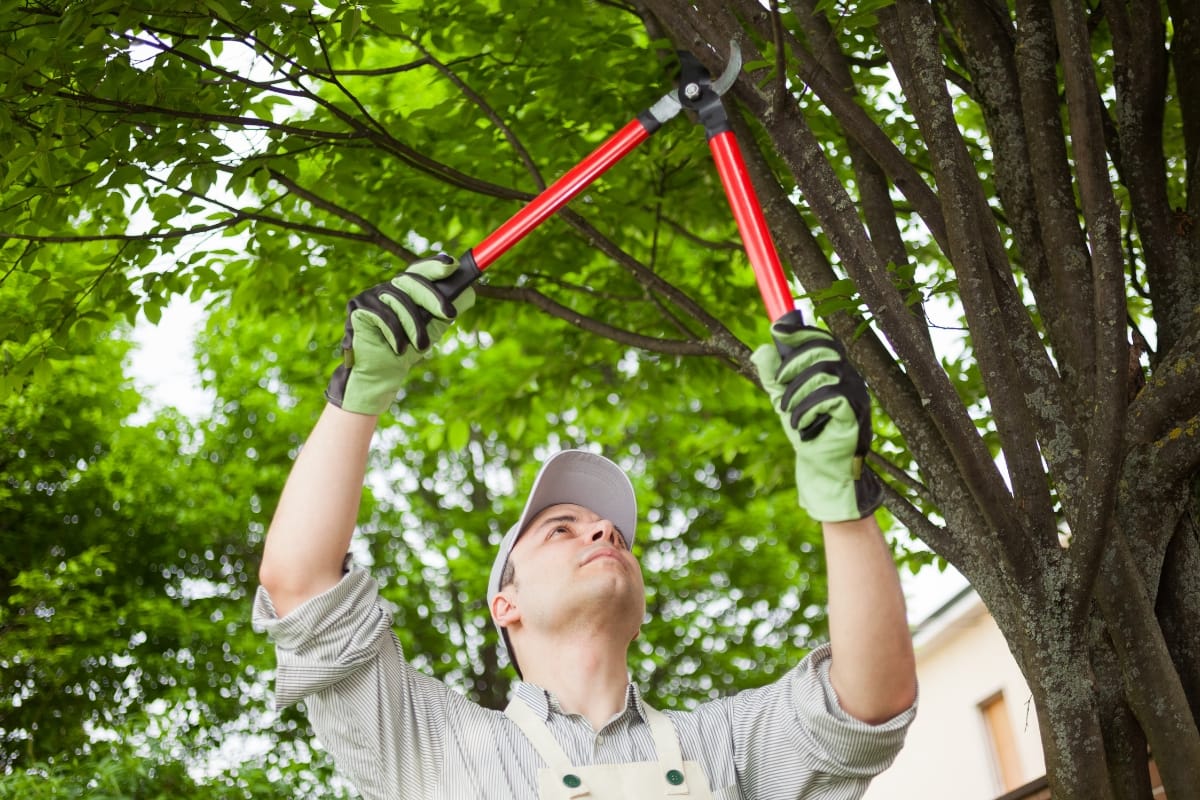
Managing existing tree roots near driveways and sidewalks in Johns Creek requires targeted strategies. This section explores techniques for mitigating root growth in critical areas and practical solutions for repairing damage caused by invasive roots. By implementing these methods, property owners can protect their hardscapes while maintaining healthy trees.
Techniques for Mitigating Root Growth Near Driveways
Property owners in Johns Creek can mitigate root growth near driveways by implementing root pruning techniques. This involves carefully cutting problematic roots to redirect growth away from hardscapes. Arborists use specialized tools to make clean cuts, minimizing stress on the tree while effectively managing root spread.
Another effective technique is the installation of root barriers along the edges of driveways. These physical barriers force roots to grow downward instead of outward, protecting the driveway’s structural integrity. When combined with proper soil management and regular tree maintenance, these methods significantly reduce the risk of root-related damage to driveways in Johns Creek.
Solutions for Repairing Damage Caused by Tree Roots
Repairing damage caused by tree roots in Johns Creek often involves a combination of hardscape restoration and root management. Concrete lifting techniques can address uneven surfaces, while crack filling and sealing prevent further water infiltration. For more severe cases, sections of damaged pavement may need replacement, incorporating flexible materials or structural support to accommodate future root growth.
Root pruning, combined with soil modification, can help prevent recurring damage. Arborists may recommend selective root removal or the installation of root barriers to redirect growth away from repaired areas. These solutions, when implemented properly, can extend the life of driveways and sidewalks while maintaining tree health:
- Assess damage extent and tree health
- Choose appropriate repair method
- Implement root management strategies
- Monitor for signs of new growth or damage
- Schedule regular maintenance checks
Tree root management demands attention and skill. For those seeking guidance, valuable resources await.
Resources for Residents Addressing Tree Root Issues
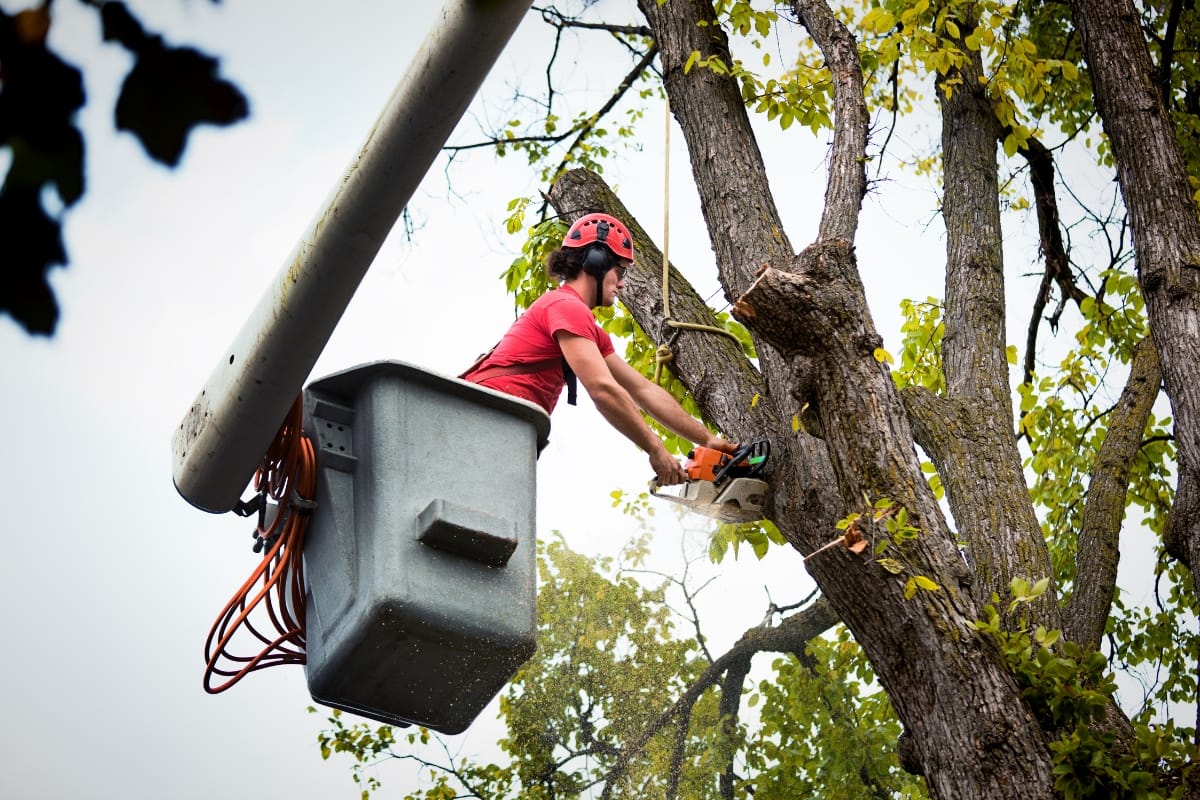
Johns Creek residents facing tree root issues have access to valuable resources. Community programs offer educational workshops on tree care and root management. Professional services provide expert assessment and solutions for root-related damage. These resources equip homeowners with knowledge and support to effectively address tree root challenges and protect their property.
Community Programs for Tree Care Education
Johns Creek offers community programs that educate residents about tree care and root management. These initiatives provide valuable knowledge on proper tree selection, planting techniques, and maintenance practices to prevent root damage to driveways and sidewalks. Through workshops and seminars, homeowners learn to identify early signs of root issues and implement preventive measures effectively.
Local arborists and horticulturists often lead these educational programs, sharing their expertise on tree species native to Johns Creek and their root growth patterns. Participants gain hands-on experience in root pruning, soil management, and the use of root barriers, empowering them to protect their property while maintaining healthy trees. These community resources foster a collective approach to urban forestry and infrastructure preservation.
Professional Services for Tree Root Damage Assessment
Professional tree root damage assessment services in Johns Creek offer homeowners expert evaluations of their property’s root-related issues. These services employ advanced techniques such as ground-penetrating radar and root mapping to accurately identify the extent of root intrusion and potential risks to driveways and sidewalks.
Certified arborists conducting these assessments provide detailed reports outlining the current state of root systems and recommend tailored solutions for each property. Their expertise helps homeowners make informed decisions about root management, potentially saving thousands in repair costs and preserving the health of their trees and hardscapes.
Frequently Asked Questions
How can I identify tree root damage to my driveway or sidewalk?
Tree root damage to driveways or sidewalks often appears as cracks, raised sections, or uneven surfaces. Look for visible roots near concrete, soil upheaval, or gaps between pavement and foundation. These signs indicate potential root intrusion, which can worsen over time if left unaddressed.
What are effective strategies to prevent tree root damage in Johns Creek?
To prevent tree root damage in Johns Creek, homeowners can implement regular deep watering, apply mulch around trees, avoid soil compaction, plant trees away from structures, use root barriers when necessary, and choose native species adapted to local conditions. Regular inspections by certified arborists can also help identify potential issues early.
How often should I perform maintenance to minimize tree root damage?
Regular tree maintenance, including annual inspections and pruning, helps minimize root damage. Water deeply but infrequently, mulch properly, and avoid soil compaction. For large trees or complex issues, consult a professional arborist to assess and address potential root problems before they become severe.
Can existing tree roots be managed to prevent further damage?
Tree roots can be managed to prevent further damage through various methods. Techniques include root pruning, installing root barriers, and modifying soil conditions. Professional arborists can assess the situation and recommend appropriate strategies to control root growth while maintaining tree health and structural integrity.
Where can Johns Creek residents find resources for addressing tree root issues?
Johns Creek residents can find resources for addressing tree root issues through Campbell Tree Management Services. This family-run business, based in Acworth, offers expert tree care services across the region, including Johns Creek. They provide comprehensive solutions for tree-related problems, including root issues, ensuring healthy and safe green spaces.
Stop Root Damage Before It Starts—Call Campbell Tree Management Services Today!
Tree roots can cause significant damage to driveways, sidewalks, and foundations if left unchecked—but proactive care can save you thousands in repairs. At Campbell Tree Management Services, we specialize in professional tree services to prevent structural damage while preserving your landscape’s beauty. Our certified arborists serve Johns Creek homeowners with tailored solutions that balance tree vitality and property protection. Don’t wait for cracks to appear! Request your free quote today by calling (770) 286-8058—let’s safeguard your hardscapes before damage occurs.
